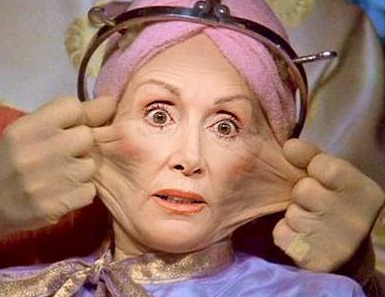Caterpillar Corruption: Time to pick on the proper tax evaders?!
Subcommittee exposes Caterpillar offshore profit shifting
U.S. icon routes profit through Switzerland to avoid $2.4 billion in taxes
Monday, March 31, 2014
WASHINGTON – Caterpillar Inc., an American manufacturing icon, used a wholly owned Swiss affiliate to shift $8 billion in profits from the United States to Switzerland to take advantage of a special 4 to 6 percent corporate tax rate it negotiated with the Swiss government and defer or avoid paying $2.4 billion in U.S. taxes to date, a new report from Sen. Carl Levin, the chairman of the U.S. Senate Permanent Subcommittee on Investigations shows.
“Caterpillar is an American success story that produces phenomenal industrial machines, but it is also a member of the corporate profit-shifting club that has shifted billions of dollars in profits offshore to avoid paying U.S. taxes,” Levin said. “Caterpillar paid over $55 million for a Swiss tax strategy that has so far enabled it to avoid paying $2.4 billion in U.S. taxes. That tax strategy depends on the company making the case that its parts business is run out of Switzerland instead of the U.S. so it can justify sending 85 percent or more of the parts profits to Geneva. Well, I’m not buying that story.”
Caterpillar’s offshore tax strategy will be the subject of a Tuesday hearing, the latest in a series of subcommittee probes into tax avoidance by multinational corporations. Previous hearings examined offshore tax avoidance by Apple, Microsoft, and Hewlett-Packard, among others.
Starting in 1999, Caterpillar paid PricewaterhouseCoopers, acting as both its tax consultant and auditor, over $55 million to develop and implement a tax strategy built around redirecting to Switzerland taxable profits from sales of Caterpillar branded replacement parts manufactured by third parties under contract with the company.
Under the Swiss tax strategy, in exchange for a small royalty, Caterpillar transferred rights to the profits from its profitable international parts distribution business to a wholly controlled Swiss affiliate called CSARL. Caterpillar essentially redirected the profits by simply replacing its name with CSARL on its invoices. No personnel or business activities were moved from the United States to Switzerland, and most of the parts business remains in the US.
Prior to issuing the license, Caterpillar had booked 85 percent or more of its non-U.S. parts profits in the United States, where 70 percent of those parts are made and warehoused and where its global parts operation was created and is managed. The license allowed CSARL to sell the parts to Caterpillar’s non-U.S. dealers and pay Caterpillar a royalty equal to only about 15 percent of the parts profits, while keeping the remaining 85 percent on its books in Switzerland. From 2000 to 2012, Caterpillar directed so much of its parts profits to CSARL in Switzerland that it avoided paying U.S. taxes totaling $2.4 billion on parts profits of $8 billion.
“Caterpillar gave its Swiss sub $1 dollar of profits in exchange for 15 cents, a deal no reasonable business would offer,” Levin said. “It didn’t even ask to be compensated for turning over a profitable parts business that Caterpillar took decades to develop. It wasn’t a real business transaction; it was a tax deal pure and simple to shift profits between related parties.”
Caterpillar sent the vast majority of its profits to Switzerland even though only about 65 of the 8,300 Caterpillar employees who handle parts work in Switzerland. That contrasts with the nearly 5,000 U.S. employees who handle parts. None of the manufacturing, warehousing, or distribution activities – the heart of the parts business – exists in Switzerland. Because it lacks the personnel, infrastructure, and expertise to run the company’s parts business, CSARL pays Caterpillar to keep doing the work, reimbursing it for its costs plus a small service fee.
Caterpillar told the subcommittee that sending the lion’s share of the parts profits to Switzerland is justified because its Swiss affiliate performs valuable intangible services. But the report points out that a company executive, under oath, acknowledged that there was no business advantage to the Swiss arrangement other than tax avoidance. The report also shows how Caterpillar, when evaluating the same type of intangible services at another time, found their value to be negligible.
“When Caterpillar and its tax advisers launched this tax avoidance scheme, almost nothing changed in the real world,” Levin said. “The manufacturing workers who make world-class parts, the managers who operate its parts operations, the warehouses where they are stored – none of that changed. But in the fantasy land that is international tax law, tax lawyers waved a magic wand to make millions of dollars in U.S. taxes disappear.”
Tuesday’s hearing is at 9:30 a.m. in Room 106 of the Dirksen Senate Office Building. It will include testimony from independent tax experts and executives from Caterpillar and PricewaterhouseCoopers. Full details are available on the subcommittee’s website, where the hearing will be streamed live.




